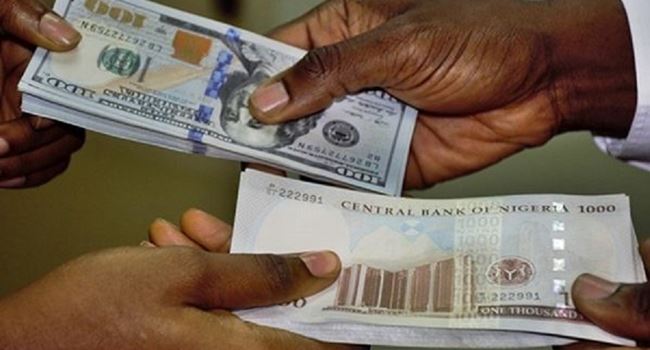Against the US dollar, which was the leading currency in the forex market, the naira gained strength as the Central Bank of Nigeria (CBN) entered the fray. In a new action, the central bank is purchasing naira and selling US dollars in order to reset currency rates on both the official and informal markets.
The forces of supply and demand determined the exchange rates in the local foreign exchange market for months, according to the apex bank. Unfortunately, the total amount of US dollars available for transactions in both the official and black market has continued to be outpaced by the demand for foreign currencies.
Exchange rates went crazy as a result, cutting close to N1580 on both the official and parallel markets. Subsequent to foreign exchange sales to approved dealers and Bureau de Change operators through the official markets, the hope that the local currency will recalibrate improved.
On Thursday, the Central Bank of Nigeria (CBN) started a significant intervention in the foreign exchange market by selling US dollars to authorized dealers and bureau de change operators.
With comparatively lower exchange rates at the official and informal markets, the apex bank intervened in the foreign currency market to prevent the naira from plunging out of control. discovered that banks and other approved dealers purchased $13.5 billion from the apex bank at a rate of N1510–N1530 per US dollar. Similarly, the BDCs each purchased a $20,000 deal from the CBN for N1450.00.
The action boosted forex market confidence, causing exchange rates to improve across board. In the official market, the naira closed at N1,566.82 per dollar, a 0.94% appreciation in exchange from the previous FX quote on Wednesday, according to data from the FMDQ platform.
In the parallel market, the naira appreciated, ending the day at an average of N1,590 per US dollar from N1600. Data from the CBN website showed that gross external reserves remained intact, settling at $35.772 billion on Thursday.
In the global commodity market, oil prices steadied after trading higher. Thus, the WTI crude futures fluctuated around $82.5 per barrel on Thursday, the biggest daily gain in over a month while the Brent Crude traded at $84.6 per barrel.
Crude oil prices are expected to maintain uptrend this week as EIA data showed US crude stocks fell by 4.87 million barrels to the lowest since February, surpassing forecasts of a 0.8-million-barrel drop. This is the third consecutive weekly decline, the longest stretch of stockpile reductions since September
Naira exchange rate weakness is now seen as problematic, with companies recording huge FX losses and the economy heavily reliant on imports of goods and other services not readily available in the country.













